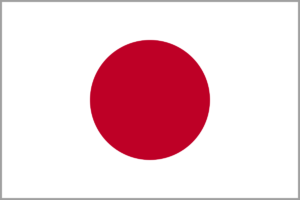The Japanese Government Grants Regulatory License to 11 Exchanges
Date Written: October 11 2017 Written By: Kyle DavidEleven cryptocurrency exchanges were granted legal legitimacy yesterday as the Japanese government handed out regulatory licenses. The licenses come as part of Japan’s Virtual Currency Act, passed in April this year.
The act came about after the infamous Mt Gox exchange hacking as a way to protect cryptocurrency users from losing their coins without any sort of legal recourse or compensation.
The Virtual Currency Act stipulated that each exchange must have a minimum of 10 million yen (US$90,000 in capital) and a secure IT system to protect against hacking and theft. Exchanges must undergo annual audits by certified accountants.
Cryptocurrency exchanges must also register with the government. Exchanges had six months from the passing of the Virtual Currency Act to do so. The licenses that the Japanese government issued recently are the products of this registration and compliance with the other requirements of the VCA.
The Virtual Currency Act has placed Japan at the global helm of cryptocurrency regulation. The act did not declare any kind of cryptocurrency as legal tender, but it did impose regulations on cryptocurrency exchanges that would make them legitimate in the eyes of the Japanese government.
Japan Takes the Place of China as World’s Largest Bitcoin Trading Hub
The granting of regulatory licenses to cryptocurrency exchanges in Japan comes at a crucial moment in cryptocurrency’s history. Over the past month, cryptocurrency markets have undergone deep fluctuations in tandem with China’s series of announcements that effectively banned trading cryptocurrency in the country. Additionally, South Korea’s financial regulator announced that the country plans to ban ICOs on Friday.
Shortly after the full extent of China’s crackdown was made plain, Japan replaced China as the country with the largest volume of cryptocurrency trading in the world. Additionally, the global cryptocurrency markets took a hit that it has not yet fully recovered from.
Near the beginning of September this year, Bitcoin was trading at nearly US$5000; now (nearly a month later), a single Bitcoin is worth about US$4300. The coin shrunk just below US$3000 at its lowest point, a level that Bitcoin has not seen since early August.
Many analysts credit Japan’s legal legitimization of Bitcoin and Ethereum earlier this year with much of the meteoric rise that sent both coins to the moon.
Exchanges Are Pushing For Regulations Globally
In the business world, regulations are usually regarded as a negative thing. However, cryptocurrency-based companies all around the world are actually the champion forces pushing for government regulation.
This is no accident–when governments take steps to legislate around cryptocurrency trading, the practice suddenly becomes legitimate in the eyes of many individuals and corporations who may have previously been wary of the “wild west” aspects of the unregulated cryptocurrency world.
The result is that those hesitant users will often decide to “jump in” and begin trading and investing cryptocurrency. In this case, a win for one is a win for all; the markets expand, coin valuations increase, and everyone is (theoretically) happy.
Regulations surrounding ICOs and cryptocurrency trading are slowly being introduced and passed through legal systems in many countries around the world, including India, the United States, and the European Union.



